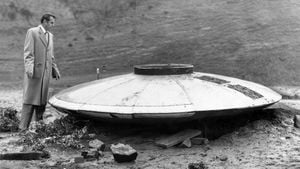Faced with increasing tensions and violence, Israel is positioning itself to offer Lebanon a ceasefire plan, which is being viewed as a diplomatic gesture toward Donald Trump, who is set to return to the White House. According to various reports, including from The Washington Post, Israel's Prime Minister Benjamin Netanyahu sees this move as both practical and politically advantageous. This new ceasefire proposal is framed as a "gift" to Trump, potentially marking an early diplomatic victory for him upon his return to office.
The timing is quite telling. The latest wave of violence includes thousands of rockets fired by Hezbollah aimed at Israel, following the notorious Hamas attacks earlier this year on October 7. This led to widespread displacement among Israeli citizens, particularly those residing near the northern borders. Recent polls suggest considerable public support within Israel for continued military operations against Hezbollah.
Interestingly, the ceasefire initiative—which reportedly involves cooperation between Moscow and Western nations—is still very much under negotiation. Israel has reportedly received backing from Moscow, which is expected to play a key role by preventing Hezbollah from receiving materials through Syrian routes. Delicate discussions have been taking place, with Israeli Strategic Affairs Minister Ron Dermer even heading to Moscow recently to follow up on these negotiations.
According to Israeli officials, the ceasefire proposal includes moving Hezbollah forces north of the Litani River, thereby placing the Lebanese military at the forefront of border security for the next two months, under the watchful eyes of the United States and the United Kingdom. Sources close to Hezbollah indicate the group may be open to these terms, but there’s still no formal agreement presented to them for settling hostilities.
Despite the defensive posture portrayed by the Israeli government, the proposal arrives amid heavy airstrikes, as Israel continues its military operations against Hezbollah’s positions. Just recently, airstrikes targeted areas of southern Beirut and other locations with reported collateral damage leading to civilian casualties. Humanitarian concerns are rising, with airstrikes causing significant loss of life, including numerous casualties during attacks on the village of Dawhit Aramoun.
Within the Israeli government circles, there’s considerable debate about how far to go with these negotiations. Israeli Energy Minister Eli Cohen made it clear, stating any ceasefire deal should not limit their operational capacity to return to Lebanese territory if Hezbollah undermines their security. He indicated, "We will be less forgiving than in the past over attempts to create strongholds near Israel."">
Nonetheless, some factions within the Israeli coalition strongly advocate for the continuation of military actions without pause. New Israeli Defense Minister Israel Katz has stressed the importance of persistent pressure on Hezbollah, aligning with the sentiment echoed by the public, where many clearly oppose stopping military operations, favoring to stamp out any resurgence of hostilities.
Adding another layer to this complex geopolitical situation is the impending influence of Donald Trump, who, according to reports, is pushing for significant progress on this ceasefire deal as part of revitalizing his foreign policy agenda. Sources indicate there’s consensus building among Israeli officials and right-wing elements, pushing the narrative of strengthening ties anew. Meanwhile, Jared Kushner, Trump's son-in-law, who played integral roles during previous administrations, is expected to take on influential advisory roles
While talks continue, the reality on the ground remains brutal. The humanitarian toll mounts with many trapped amid hostilities and continuous bombardment, raising questions about international oversight and intervention. For now, the ceasefire talks could signal either the beginning of de-escalation or merely another ploy amid cautionary hostilities.



